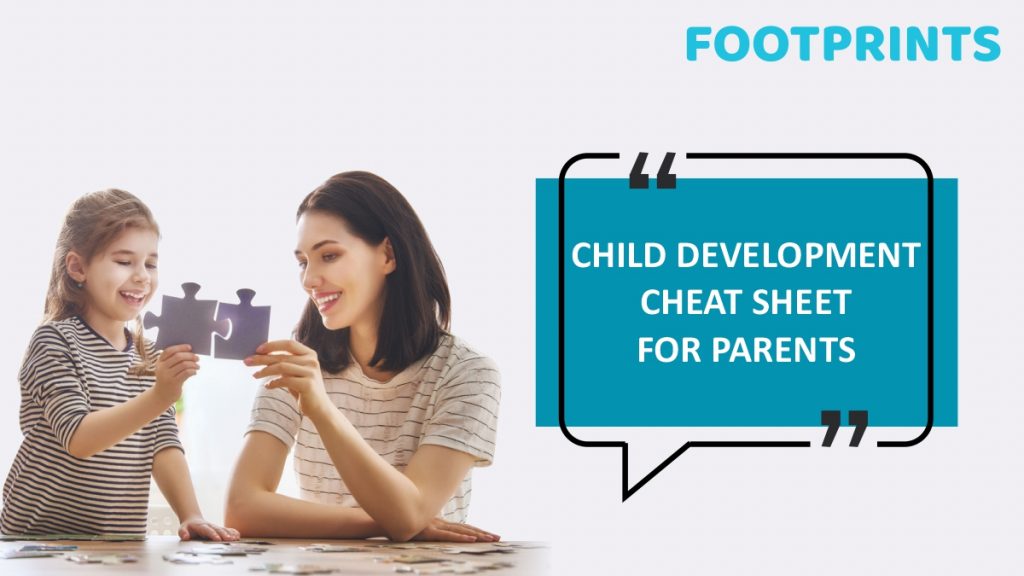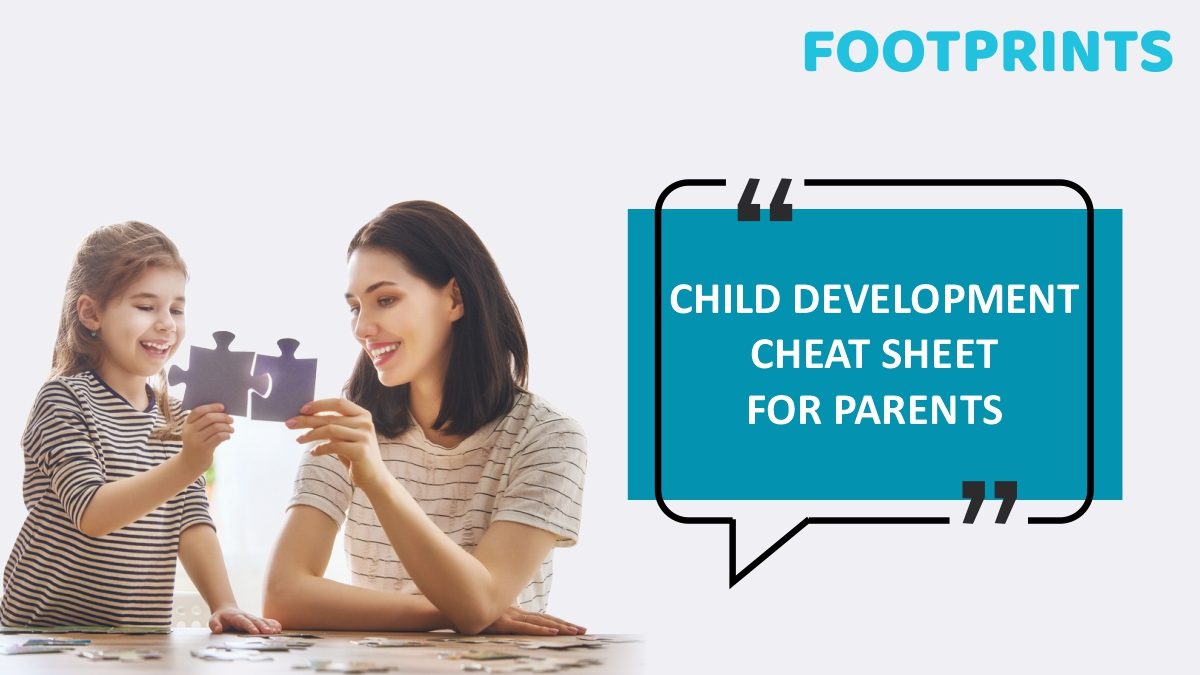
Every parent has at some point in their parenting journey wished that their child came with a manual. Especially when you have a preschooler at hand, you want to make sure you do the right things to ensure holistic child growth and development. While you need not buy into the myth of the perfect parent, there are some aspects of child development stages, knowledge of which can go a long way in ensuring that you offer developmental support to the child. Here is a handy child development cheat sheet
Child Development Areas
Broadly, early childhood development happens in 4 areas. These are:
✔ Physical.
✔ Cognitive.
✔ Social-emotional.
✔ Language.
Each of these developmental domains, in turn, interacts with the other. For example, your 3-year-old throwing a tantrum may be a result of the fact that his language skills aren’t fully developed & therefore he cannot fully express himself. The tantrum is a manifestation of his frustration. Once you are aware of this aspect, you may find it easier to address his frustration.
Let us look at each of these developmental areas in some detail
Physical Development
The physical development of the child, of course, is the most noticeable. You will notice the child developing his gross & fine motor skills. The child is now able to run, kick a ball, and climb onto furniture, unassisted. To help develop these skills it is important that you take the child to a park, for example, where he can run or take to the slide and more.
Fine motor skills refer to more coordinated movements- think of the child being able to eat with a fork or putting on his shoes all by himself. To help the child develop these skills it is necessary that you allow them to carry out activities that he or she can do, as opposed to doing it for them. Similarly setting up sensory activities, and offering them sensory toys are other ways of improving these skills.
Pro tip- A lot of the child’s physical growth occurs during sleep. Ensuring therefore that the child follows a proper sleep schedule is important for physical growth.
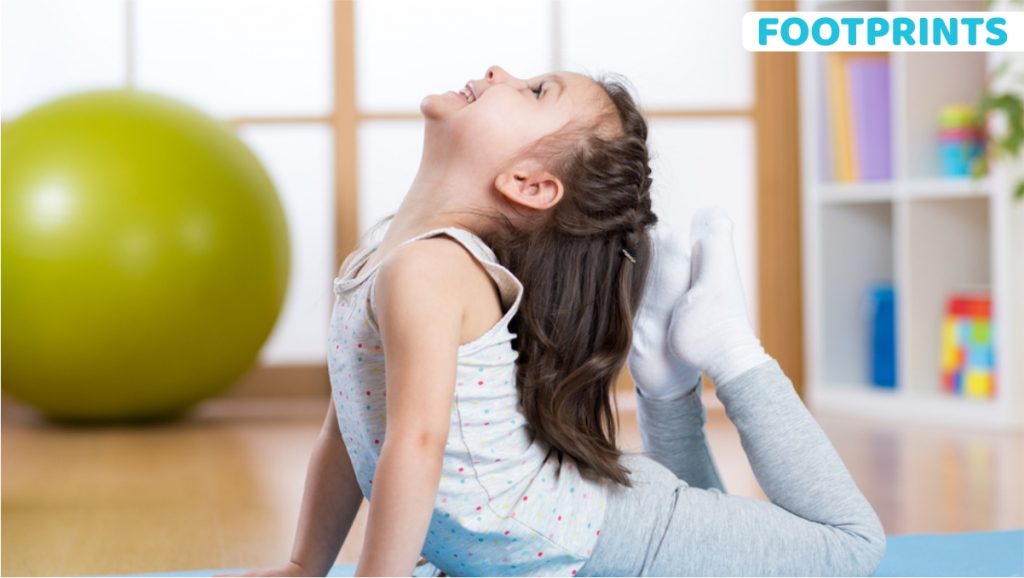
Cognitive Development
Once your child begins to go to preschool, you will notice a lot of cognitive development taking place. As parents, however, it is important to remember that learning takes place every moment. Children can learn a lot through play as they observe keenly and explore the environment. So while trying to teach them the alphabet or numbers is important, that isn’t the only time they are learning. Read books to them, take to solving puzzles, and encourage the child to help you with chores and you would be supporting the child’s cognitive development.
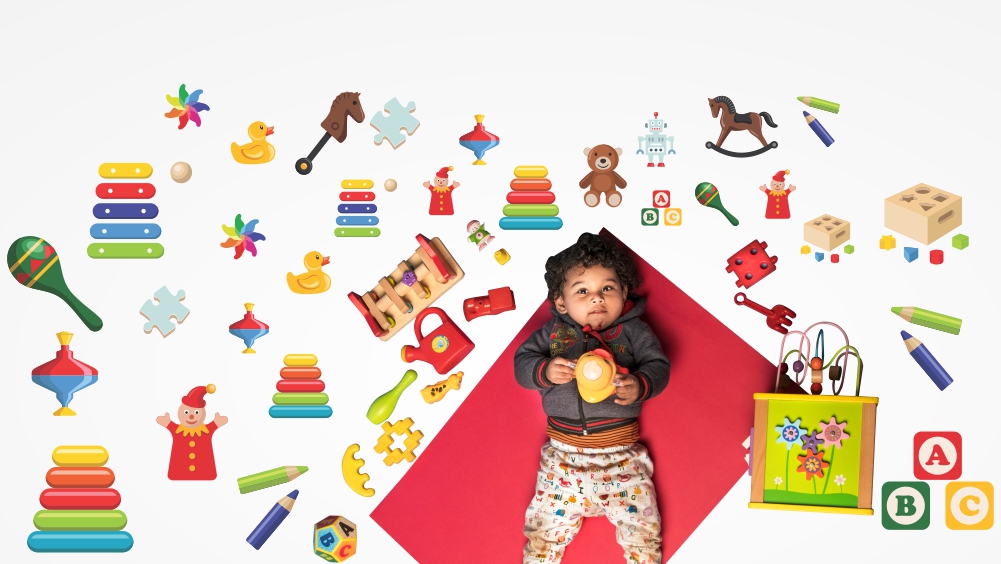
Social-Emotional Development
Children learn to express their feelings & emotions and also to use the feelings to build relationships with others. While as parents we juggle many responsibilities, it is important that you take the time to respond to the child while he or she tries to communicate with you. On not receiving any response the child feels neglected & may take to activities, often negative, if only to get your attention. It is also important to follow consistency in the child’s routine so that they know exactly what to expect. Offering effective praise & modeling appropriate behavior are some ways that you can help aid the child’s socio-emotional development.
Language Development
This is an important aspect of the child’s development as he or she learns the meaning of words, and learns to string words together to make meaningful sentences. To develop this skill, the one thing you definitely need to do is to talk to young children without worrying about whether or not they will understand what you are saying. Simple things like describing what you are doing, reading to them, and more can help with developing their communication skills. Asking them simple questions is also quite helpful. So to your question on what the object is, if the child responds with “ car”, you can while showing your pleasure also state that it is a red car & that it drives fast. Of course, you need to stick to age-appropriate vocabulary, however, continuing to speak to children definitely adds to their arsenal of words. Research shows that at age one, children recognize about 50 words; by age three, they recognize about 1,000 words; and by age five, they recognize at least 10,000 words. Pro tip- While “baby talk” might sound cute, it is best to model the proper use of language. It is fairly important that the child hears the right way of pronouncing words. So the next time the child says “mum mum” for milk, respond by saying “yes I am getting some milk for you.”
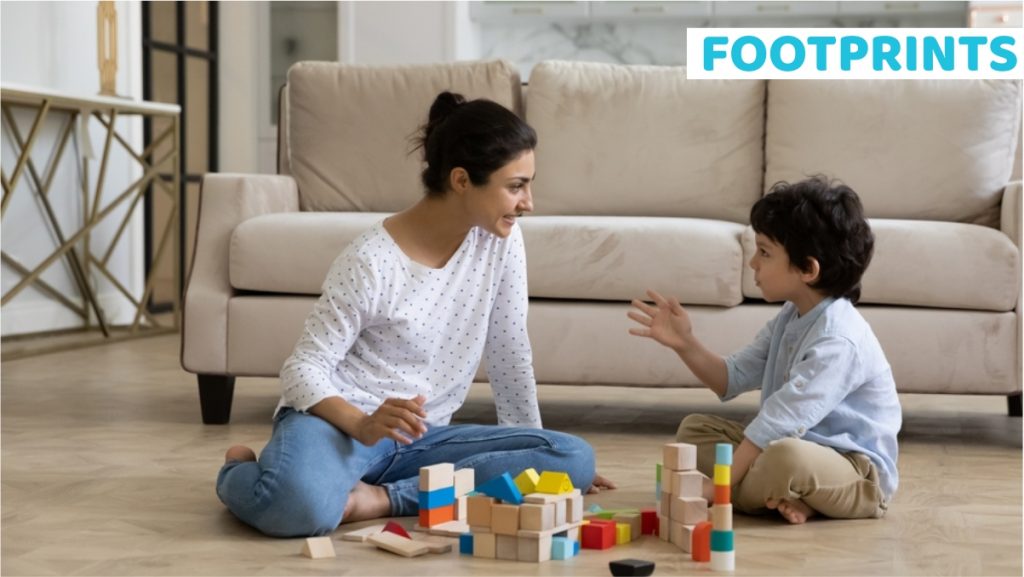
Here are some more parenting tips that will come in handy as a parent of a preschooler, given their developmental milestones:
- Make sure you read to the child to spark the love for the written word, early.
- Give your child age-appropriate chores. Passing on the table mats while you are laying the table, helping you fold clothes, and more, there is a world of opportunity
- Make sure the child spends time with other children. That’s the best way to learn lessons in sharing.
- When disciplining the child, be consistent. Don’t make threats you cannot keep.
- Teach the child that all feelings are okay but some actions are not. So if your child is angry because another child did not give her a toy and she pushed the child in anger, you need to explain that while being angry is okay, the act of pushing is not.
- Ensure you offer your child age-appropriate choices. For example instead of telling the child what you are cooking for breakfast give them the choice of two healthy options.
- As parents, it is also important to know that while structured activity has a certain place in the child’s schedule, free play is equally important. Do not worry about the child getting bored; on the contrary, it will enhance the child’s creativity as he keeps himself occupied.
All of this said, please remember that you are doing your best as a parent, and hence do not beat yourself up if one day you are not able to respond to the child as you had meant to do because you were occupied with an urgent task.
With 90% of the brain development happening in the first 5 years, here’s to making these years count!
Aditya brings over ten years of expertise as a Senior Marketing Strategist. He’s an expert at developing captivating marketing tactics that regularly provide excellent outcomes. His innovative strategies have demonstrated a track record of increasing organizational reach and engagement, showcasing his extensive knowledge of the contemporary marketing landscape.


